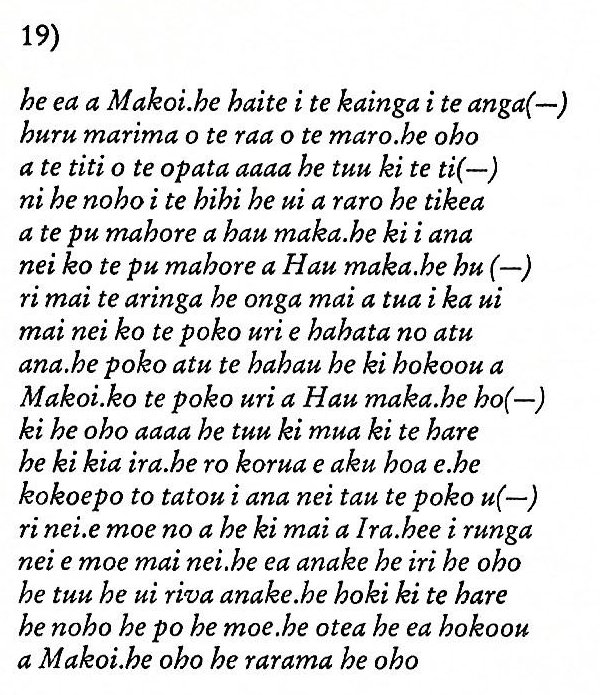
| kuhane.hokoou.he rarama he oho te
vaka |
The canoe continued its
exploration and in a sweep [he vari] sailed on to
Hanga Te Pau. |
| he vari ki
hanga.te pau he tomo ki uta. he too |
|
Uta. Higher up
(from the coast, or from another place); i uta era,
further up, up there; ki î te îka i uta, as there
are lots of fish on the beach. Vanaga. 1. Inland,
landward; paepae ki uta, to strand, to run
aground; mouku uta, herbage. 2. To carry; uta
mai, to import; hakauta, to give passage.
Campbell. |
|
E:18 |
| i te kai te uta.hee totoi i te vaka
ki uta he ha(-) |
They went ashore and took
the food [te kai] with them. They pulled the
canoe onto the beach and left it there.
Ira sat down [he noho] with all the other
(companions) and spoke to Makoi [ka ki era kia Makoi]:
'You shall mark the land for me and make it known (by
its name)!'
After that, Ira spoke these words: 'This is the
diggning stick (? ko koko], Kuukuu. You shall work the
land for me and plant the yam roots [te uhi]!' |
| karere.he noho a ira anake.he ki a
Ira.ka ki era |
| kia Makoi.maau e tuki e haite te
kainga.he ki |
| hokoou a Ira.ka ki era.kokoko
e Nguukuu e. |
| maau e keukeu
e oka te uhi. |
| Keu. Communal
enterprise, work done in common: mo te keu. for
the work done in common (for instance: collecting food
mo te keu, to give to the helpers). Keukeu:
1. To work; to work long and steadily: he-keukeu te
aga; tagata keukeu henua, farmer. 2. To get ready,
e.g. for a trip: ka-keukeu koe, ki oho tâtou. get
ready, we are going; ka-keukeu ki turu ki tai, ki hî,
get ready for going down to the sea, to fish. 3. To
approach (of rain): he-keukeu te ûa. Vanaga.
Oka. 1.
Lever, pole; to dig holes in the ground with a sharpened
stick, as was done in ancient times to plant vegetables;
used generally in the meaning of making plantations. 2.
The four sideways poles supporting a hare paega.
Okaoka, to jab, to pierce, to prick repeatedly.
Vanaga. Digging stick, stake, joist; to prick, to
pierce, to stick a thing into, to drive into, to
slaughter, to assassinate; |
|
 |
| He nape mai a Makoi.i te ingoa.ko
hanga te pau |
Makoi named the place Hanga
Te Pau, 'the landing site of Ira'. So that they would
remember (? he aringa, literally, 'as face'), the
open side [ko mua] of Hanga Te Pau was given this
name. |
| ko te tomonga o
Ira.he aringa.ko mua a hanga |
| te pau.i
nape ai te ingoa. |
|
Pau. 1. To run
out (food, water): ekó pau te kai, te vai, is
said when there is an abundance of food or water, and
there is no fear of running out. Puna pau, a
small natural well near the quarry where the 'hats' (pukao)
were made; it was so called because only a little water
could be drawn from it every day and it ran dry very
soon. 2. Va'e pau, clubfoot. Paupau:
Curved. Vanaga. 1. Hakapau, to pierce (cf.
takapau, to thrust into). Pau.: pau, a cut, a
wound, bruised, black and blue. 2. Resin. Mq.: epau,
resin. Ta.: tepau, gum, pitch, resin. (Paupau)
Hakapaupau, grimace, ironry, to grin. 3. Paura
(powder), gunpowder. 4. Pau.: paupau, breathless.
Ta.: paupau, id. 5. Ta.: pau, consumed,
expended. Sa.: pau, to come to an end. Ma.:
pau, finished. 6. Ta.: pau, to wet one
another. Mq.: pau, to moisten. Churchill. Paua
or pāua
is the Māori name given to three species of large
edible sea snails, marine gastropod molluscs which
belong to the family Haliotidae (genus
Haliotis), known in the USA as abalone, and in the
UK as ormer shells ... Wikipedia |
|
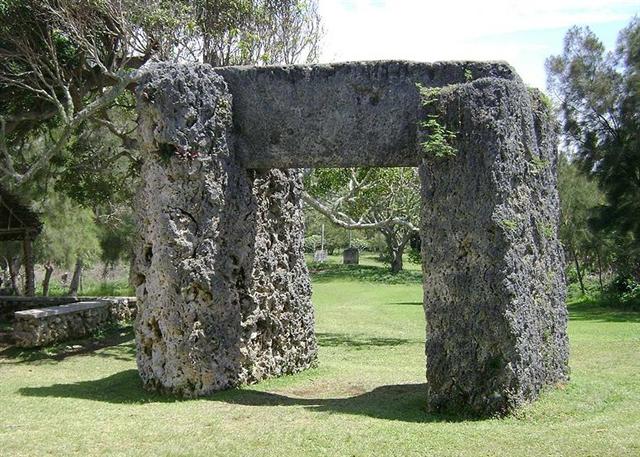 |
| he ea.a
Ira.he iri he oho
ki runga anake. |
Ira got up. They all climbed to the top
of the hill. |
| Ea. To rise, to get
up. Ka ea ki táû rikiriki tâtou. Let's get up and
play a little game of war. Vanaga. To go out, to bring
out; ea ki aho, to send away; raa ea mai,
the sun rises; ka ea, be off. Churchill.
Iri. 1. To go up; to go in a boat on the sea
(the surface of which gives the impression of going up
from the coast): he-eke te tagata ki ruga ki te vaka,
he-iri ki te Hakakaiga, the men boarded the boat and
went up to Hakakainga. 2. Ka-iri ki puku toiri
ka toiri. Obscure expression of an ancient curse.
Vanaga. Iri-are, a seaweed. Vanaga.
Ruga.
Upper part, higher part; when used as a locative adverb,
it is preceded by a preposition: i ruga, above,
on; ki ruga, upwards, mai ruga, from
above. When used with a noun the same preposition is
repeated: he-ea te vî'e Vakai, he-iri ki ruga ki te
Ahu ruga, the woman Vakai went, she climbed Ahu
Runga. Ruga nui, high, elevated, lofty: kona
ruga nui, high place, elevated position, high
office; mana'u ruga nui, elevated thoughts.
Vanaga. High up; a ruga, above; ki ruga,
on, above, upon; ma ruga, above; o ruga,
upper; kahu o ruga, royal (sail); ruga iho,
celestial. Hakaruga, to accumulate, to draw up. P
Pau., Mgv.: ruga, above. Mq.: úna, úka,
id. Ta.: nua, nia, id. Churchill. |
| i te angahuru o
te raa o te maro |
They climbed up on the tenth
day of the month of June ('Maro).
They reached the side crater (te manavai) and looked
around carefully.
Makoi said, 'This is the Manavai of Hau Maka'. |
| i iri ai.he tuu ki te manavai hee
rarama. |
| he ki a Makoi.ko
te manavai a hau maka |
| Manavai. Hollow where
rainwater accumulates; anciently, small, round gardens,
preferably situated in low shady spots, where the mahute
tree was grown. Vanaga. 1. Brain. 2. Valley, ravine, river,
torrent, brook; manavai miro, orchard, Mq.: manavai,
valley, brook. Ta.: anavai, river, brook. It scarcely
appears that these are fully coordinate. In Tahiti anavai
has a clear etymology, ana meaning the bed of a stream.
In Rapanui and in the Marquesas mana most readily
associates with maga, as water in a forked bed.
Churchill. Mahute. A tree (Boussonetia papyrifera)
formerly more abundant on the island, the fibres of which were
used for clothing (see nua and hami). Vanaga. The
tree Broussonetia papyrifera, indispensible for all types
of fasteners (lines, twine, ropes, and rigging). Barthel 2.
Maute, paper mulberry (mahute G). P Mgv.: eute,
ute, id. Mq.: ute, id. Ta.: aute,
Hibiscus rosa-sinensis. Pau.: aute, id. Mahutehute
(mahute - tutu 1) bast cloth in the last stage of
preparation (maute). Churchill.
Tapa. 1. Side, corner,
edge; he-hakarere a te tapa, to leave aside, to abandon;
a te tapa mata'u o te haga, on the right-hand side of the
bay. 2. Tapa mahute, piece of mahute material;
this term is very common nowadays, but it seems probable that it
was borrowed from the Tahitian in replacement of parehe
mahute. 3. To recount the years, the months; to
recount happenings of many years ago, in verses called manu,
in which a murderer confided his crime to his victim's
relatives; the murderer himself asked a brother or a friend to
compose those verses: e tapa koe itooku manu, compose my
manu. The expression tapa ite manu was also used
of a group of people expressing the desire to kill someone. 4.
Tagata tapa ta'u, according to traditions, this term
referred to the scribes who recorded births on the tablets.
Vanaga. 1. Border, fringe, edge, groin, cloth, clothing, dress,
garment. Tatapa, lateral, bank. Tapatapa, edge. P
Mgv.: tapa, the edge of the bast cloth, bast cloth in
general. Mq.: tapa, fringe, cloth. 2. To name, to
mention, to count, to calculate, to reckon, to number, to figure
up, to recapitulate; tapa ki te igoa, to take a census;
tapa igoa, list. Tatapa, to count, to number, to
reckon. Tapatapa, to mention. P Mgv.: tapa, to
give a pet name. Mq.: tapatapa, to recite, to invoke;
tatapa, to take the name of some one, to announce by name.
Ta.: tapa, to call by name. Churchill. Mq.: Tapaau,
coconut leaf plaited to serve as a mat. Sa: tapa'au, a
coarse coconut leaf mat. Tapatai, a dweller on the
strand. Ma.: tapatai, beach. Churchill.
Kapa¹, adj. Haw.,
rustling, rattling; s.
cloth made of bark, cloth of any kind. Sam.:
tapa, to beckon with
the hand, to demand; s. the white border of a siapo;
tapa-au, mat made of
cocoa-nut leaf. Tong., tapa,
id.; kapa-kapa, to
flap with a noise as wings of birds. Marqu.,
tapa, bark cloth.
Tah., tapa-ie,
envelop in leaves; apa,
the lining of a garment; apa-a,
thick cloth made by men, not by the women; 'apa'apa,
to flap as sail or the wings of a bird. Fiji.,
kava, a roll of
sinnet; kaba, to
climb.Motu (N. Guinea), kava,
bark girdle for men. Biaju,
tepoh, a mat. Salayer (Celebes),
tupur, id. Malag.,
komba, a monkey.
Kawi, kapala, a
horse. Sanskr., kamp,
to move to and fro, to tremble;
chapala ('i.e., kampa-ala',
Benfey), trembling, unsteady, giddy;
châpala, quickness;
kapi ('i.e.,
kamp-i', Benfey), a
monkey. Perhaps kambala,
a wollen blanket. Greek, καμπη,
bending, winding, as a river, turn, trick, sudden change. A.
Pictet (Orig. Ind.-Eur., i. 347-348) derives the Greek
καβαλλης, a nag, and other kindred West Aryan forms for
horse and its varieties, as well as καπρος, a wild boar,
and caper, a buck, from the Kawi or obselete Sanskrit
application of the original sense, 'to tremble, rustle, flap',
found in the Sanskrit kap, kamp, and the
Polynesian kapa, tapa. Kapa², s.
Haw., a bank, shore, side, as of a river, lake, wood, or the
like. Rarot., tapa, id. Tah., apa'apa, one side of
a thing when divided, the side of a house. Sam., tafa,
the side of a hill; v. to turn on one side; tafa-fa,
four-sided; tafatafa, the side; tafa-tasi,
one-sided; tafa-to, perpendicular, steep as seen from
above; tafa-tu, id., as seen from below. Marqu.,
tapa-hai, coral; kapa-i, on the side of the sea.
Fiji., taba, wing, shoulder, branch, one side. Malg.,
taf, tafo, the roof of a house; tambon, above.
Welsh, tab, tav, an extended surface, a spread;
tob, top, top, crest; cop, summit. Irish,
capat, head. Armor., kab, id. Lat., tabula,
board, plank, table; caput, head.Sanskr., kapala,
skull, head, either half of an egg; kapola, cheek, the
temples of the head. Pers., kabah, elevation, eminence;
tabrak, tabûk, table, flat. Greek, κεφαλη,
head, top, upper end. Goth., haubith, head. Sax.,
heafod, id.; hafala, hafula, head, casque.
Anc. Germ., haupit, head; hufela, the temples.
Germ., kopf, head. A. Pictet (loc. cit., ii. 273)
refers the Persian tabrak and the Latin tabula to
Sanskrit sthâ, or perhaps stabh, tabula,
for stabula, and (i. 308) he says, speaking of the
Sanskrit kapala, and its West Aryan relations: - 'J'y
trouve un composé de pâla, protecteur, avec
l'interrogatif ka, dans le sense laudatif. Quel (bon)
protecteur! on ne saurait mieux caractériser le rôle naturel du
crâne. Or kapât et kapâ ou kapa auraient la
même signification; car pât, pâ, pa, à la
fin des composés, sont synonymes de pâla, et dérivent
également de la racine pâ, tueri.' Under correction, the
'quel bon protecteur' of Mr. Pictet appears to me a singular and
fatal misnomer of the most prominent and most exposed part of
the body. The original meaning of the Polynesian word was
probably something raised, spread out, obtruding, projecting,
beyond or above the common level of things. Hence such compound
words in the Polynesian as kapa-au, Haw., the raised
place of the Heiau (temple), where the image of the god stood
and offerings were laid; 'apa-'au, Sam., a wing;
'apa-'apa, the fin of a fish; apa-ta, to clap the
wings. The West Aryan forms: Lat., cap-ut, cap-pilus
(capillus); the Irish cap-at, alongside of ceap
and cap; the double forms in the Goth. and Sax.,
hau-ith, heaf-od, and hafa-la, hofu-la,
seem to indicate a different composition and root for
themselves, as well as the Sanskrit and Greek, than what Mr.
Pictet offers. And the probably primary sense of 'elevation,
eminence', in the root-word has survived in the Persian kabah,
the Armorian kab, the Welsh tob or top.
Fornander.
 |
|
tapa mea |
|
|
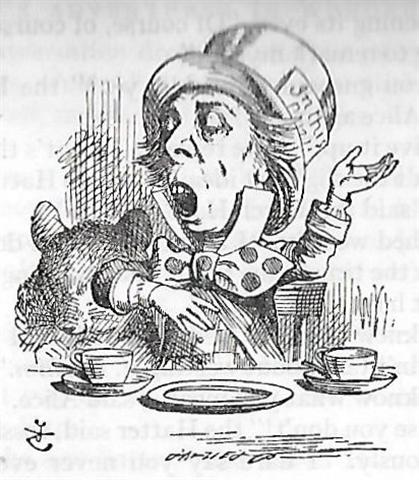
'Twinkle, twinkle [verovero],
little bat!' // How I wonder what you're at!' |
| he iri he oho he tuu ki runga he ui i
te poko uri |
They climbed farther and
reached the top. They saw the dark abyss and the large
hole (of the crater Rano Kau).
They all said, 'Here it is, young men [repa],
the dark abyss of Hau Maka.' |
| he tikea
te pakonga he ki anake i ana nei |
| e kau a repa e a
te poko uri a hau maka. |
|
Tikea. To see,
to perceive, to examine, to find; (also: tikera).
Vanaga. To see, to feel, to recognize, to perceive, to
know, manifest, to appreciate; tikea mai, to
appear, visible; tikea horahorau, to skim a book;
tae tikea, unknown, invisible, misunderstand,
unperceived, unheard; tikeahaga, science, a
dream; hakatikea, to announce, to make known, to
prove, to propose, to prejudice, to show, immodest;
hakatikeahaga, instruction. Churchill.
Poko. 1.
Fragrant; to smell, to give off a smell: he-poko te
eo, it gives off a pleasant smell. 2. To hunt, to
catch with a trap, to snare. He-kî e Tori: maaku-á
e-ea ki te manu, e-poko i te po i ruga i te opata.
Tori said: I shall go and catch birds at night, up on
the cliff. 3. Thunder (also hatutiri). 4. (Also:
pokopoko.) Hollow, hole, depression, any deep,
concave object; to leave in a hole, in a depression.
Pokoga, chasm; summit. Pokohata, female rat:
kio'e pokohata. Pokopoko, woman bent under
the weight of her years: vî'e pokopoko. Vanaga.
1. Sound of the sea; tai poko, breakers.
Pokopoko, to slap water. Mgv.: pokokina,
resonant, clear-toned. Mq.: poko, to slap the
water in imitation of drumming; pokokina, sound
of water. 2. Rut, beaten path. P Pau.: poko,
hollow; pokopoko, concave, to excavate. Mgv.:
poko, to dig, to excavate, to hollow out. Mq.:
pokoko, to crack open; pokona, to hollow out,
to excavate. Ta.: poópoó, hollow, deep. 3.
Infernal; pokoga, hell, infernal cave; topa ki
te pokoga, to damn (lit: to go down to hell.) Mq.:
pokona, cavity, hole. Churchill. Pokopoko:
1. Womb. PS Sa.: po'opo'o, clitoris. Mq.:
pokopoko, pudendum muliebre. 2. Pokopoko
vae, footprints. 3. Concave, deep, ditch,
mysterious; pokopoko ihu, nostril (Ta.:
poópoó ihu); pokopoko ke,
fathomless; pokopoko taheta, concave.
Hakapokopoko, to deepen. Chuchill.
Uri.
1. Dark; black-and-blue. 2. Green;
ki oti te toga, he-uri te maúku o te kaiga, te kumara,
te taro, te tahi hoki me'e, once winter is over, the
grasses grow green, and the sweet potatoes, and the
taro, and the other plants. Uriuri, black; very
dark. Vanaga. Uriuri, black, brown, gray, dark,
green, blue, violet (hurihuri). Hakahurihuri,
dark, obscurity, to darken. P Pau.: uriuri,
black. Mgv.: uriuri, black, very dark, color of
the deep sea, any vivid color. Mq.: uiui, black,
brown. Ta.: uri, black. Churchill. Uli, s.
Haw., the blue sky; adj., blue, cerulean, green;
uli-uli, verdure; adj., green, dark-coloured, black.
Sam., Tong., Fak., uli; Tah., uri,
blue-black, any dark colour. Fornander. |
| he noho o(i)ra he hakatuu i te
hare.he ea a |
They made camp and
constructed a house [te hare]. Kuukuu got up,
worked the ground, and heaped up the earth for the yam
roots [he puke i te uhi]. |
| kuukuu he
keukeu he puke i te uhi. |
To construct a house implied Birth, and the Gemini twins were
carpenters.
... These
dokana
are composed of a pair of upright beams, connected by a
crossbeam in the form of the letter H; and they correspond to
the unfinished brick wall of the Babylonian zodiacal sign, in
the sense that they show the Twins to have been builders ...

|
Egyptian house |
 |
Phoenician beth |
 |
Greek beta |
Β (β) |
|
... Like the names of most other
Greek letters, the name of beta was adopted from
the acrophonic name of the corresponding letter
in Phoenician, which was the common Semitic word
*bayt ('house').
In the system of Greek numerals
beta had a value of 2.
... 'The
traditions show that the residences of the king
were fairly flexible. The building of new houses
was obviously the result of (male) births in the
royal family. In each case, the house that was
built last is left to the newborn son and his
mother, together with a specific servant, while
the king has a new and separate residence
constructed for himself ...
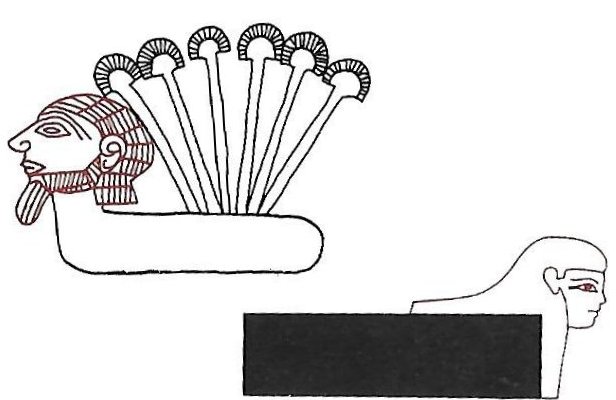 |
|
E:19 |
| he ea a Makoi.he haite i te kainga
i te anga(-) |
Makoi got up and began to
familiarize himself with the (new) land. (This took place) on
the fifteenth day of the month of June ('Maro'). He went
toward the sheer face of the rocks (titi o te opata), was
astonished (aaa) [wrong, it should be aaaa], came up to
the middle (of the outer rim of the crater), and stood at the
very edge.
He looked down and saw the 'Pu Mahore of Hau Maka' (on the
coast) and said, 'There it is, the hole of the mahore
fish of Hau Maka!' |
| huru marima o te raa o
te maro.he oho |
| a te titi o te opata aaaa he tuu ki te ti(-) |
| ni he noho i te hihi he ui a raro he tikea |
| a te pu mahore a hau maka.he ki i ana |
| nei ko te pu mahore a
Hau maka.he hu(-) |
|
Tini. To be at the zenith: ku-tini-á te raá;
middle of a journey, of a period of time; te tini o te raá,
the middle of the day. Vanaga. 1. A great number, innumerable,
infinite, indefinite. Tinitini, million, billion. T Pau.:
tinitini, innumerable. Mgv.: tini, a countless
number, infinite. Mq.: tini, id. Ta.: tini,
numerous. 2. Raa tini, noon; tini po, midnight;
te tini te raa, zenith; topa tini, abortion.
Churchill. |
| Huri. 1. To turn
(vt.), to overthrow, to knock down: huri moai,
the overthrowing of the statues from their ahus during
the period of decadence on the island. 2. To pour a
liquid from a container: ka huri mai te vai, pour me some
water. 3. To end a lament, a mourning: he huri i te
tagi, ina ekó tagi hakaou, with this the mourning (for the
deceased) is over, there shall be no more crying. 4. New
shoot of banana: huri maîka. Vanaga. 1. Stem. P Mgv.:
huri, a banana shoot. Mq.: hui, shoot, scion. 2. To
turn over, to be turned over onto another side, to bend, to
lean, to warp; huri ke, to change, to decant; tae huri
ke, invariable; huri ke tahaga no mai, to change as
the wind; tae huri, immovable; e ko huri ke,
infallible; huhuri, rolling; hakahuri, to turn
over; hakahuri ke, to divine. P Pau.: huri, to
turn. Mgv.: huri, uri, to turn on one side, to
roll, to turn upside down, to reverse. Mq.: hui, to turn,
to reverse. 3. To throw, to shoot. 4. To water, to wet. 5. To
hollow out. Hurihuri: 1. Wrath, anger; kokoma hurihuri,
animosity, spite, wrath, fury, hate, enmity, irritable, quick
tempered, to feel offended, to resent, to pester; kokoma
hurihuri ke, to be in a rage. 2. (huri 4) hurihuri
titi, to fill up. 3. To polish. 4. (uriuri).
Hurikea, to transfigure, to transform. Churchill. Mq.
huri, resemblance. Sa.: foliga, to resemble.
Churchill. |
| Ariga. Face, cheek. 1.
Ariga ora, (lit. 'living face') keepsake, memento, memory,
souvenir (of someone). This used to be the name given the
moai (stone statues) carved as memories of the dead. 2.
Ariga ora is also used in the generic sense of a memento, a
keepsake: he mate te matu'a he ato tepoki i te rîu o toona
matu'a; he-ariga ora o toona matu'a [when] the father dies,
[and] the son sings a riu for his father, this
constitutes an ariga ora of his father. Vanaga. Face,
aspect, expression, mien, visage, stature, superficies. T Ma.:
aria, to resemble. Hakaariga, to encroach.
Churchill. Ariari, sharp, the edge of a sword. Ta.:
ariari, transparence, brightness. Ha.: aliali, white.
Churchill. ALI, s. Haw., a scar on the face;
ali-ali, to be scarred; aali, a small, low place
between two larger or higher ones; pu-ali, a place
compressed, a neck of land, an isthmus; pu-ale, a ravine.
N. Zeal., pu-are, a hollow, open place. Tah.: ari,
a great deep or hollow; adj. empty, as the stomach; v.
to soop out, to hollow; ariari, thin, worn-out. Sanskr.,
arus, a wound; îrma, id.; îrina, notch,
furrow.Swed., ärr, scar. (Fornander) |
|
Tua. 1. Back, shoulder, tu'a ivi, shoulder
blade; tu'a ivi more, lumbago; moa tu'a ivi raá,
'sun-back chicken': chicken with a yellow back which shines in
the sun. 2. Behind (a locative adverb, used with i, ki, a, o,
etc). Tu'a-papa, pelvis, hips. Vanaga. 1. Behind,
back, rear; ki tua, after; o tua, younger; taki
tua, perineum. 2. Sea urchin, echinus. The word must have a
germ sense indicating something spinous which will be
satisfactorily descriptive of the sea urchin all spines, the
prawn with antennae and thin long legs, and in the Maori the
shell of Mesodesma spissa. Tuaapapa, haunch, hip,
spine. Tuahaigoigo, tattooing on the back. Tuahuri,
abortion; poki tuahuri, abortive child. Tuaivi,
spine, vertebræ, back, loins;
mate mai te tuaivi,
ill at ease. Tuakana,
elder, elder brother; tuakana tamaahina,
elder sister. Tuamouga,
mountain summit. Tuatua,
to glean. Mgv. tua: To fell, to cut down. Ta.:
tua, to cut. Mq.: tua, to fell, to cut down. Ma.:
tua, id. Tuaki, to disembowel. Ma.: tuaki, to
clean fish. Tuavera, the last breadfruit spoiled by the
wind. Ta.: tuavera, burnt by the sun. Churchill. |
| ri mai
te aringa he onga mai a
tua i ka ui |
He turned his face and looked toward
the back (i.e., in the direction of the crater). No sooner had
he seen how the dark [uri] abyss opened up [hahata]
(below him), when a fragrant breeze [hahau] came drifting
by. |
| mai nei ko te poko uri e hahata no atu |
| ana.he poko atu te hahau he ki hokoou a |
|
Poko. 1. Fragrant; to smell, to give off a smell:
he-poko te eo, it gives off a pleasant smell. 2. To hunt, to
catch with a trap, to snare. He-kî e Tori: maaku-á e-ea ki te
manu, e-poko i te po i ruga i te opata. Tori said: I shall
go and catch birds at night, up on the cliff. 3. Thunder (also
hatutiri). 4. (Also: pokopoko.) Hollow, hole,
depression, any deep, concave object; to leave in a hole, in a
depression. Pokoga, chasm; summit. Pokohata,
female rat: kio'e pokohata. Pokopoko, woman bent
under the weight of her years: vî'e pokopoko. Vanaga. 1.
Sound of the sea; tai poko, breakers. Pokopoko, to
slap water. Mgv.: pokokina, resonant, clear-toned. Mq.:
poko, to slap the water in imitation of drumming;
pokokina, sound of water. 2. Rut, beaten path. P Pau.:
poko, hollow; pokopoko, concave, to excavate. Mgv.:
poko, to dig, to excavate, to hollow out. Mq.: pokoko,
to crack open; pokona, to hollow out, to excavate. Ta.:
poópoó, hollow, deep. 3. Infernal; pokoga, hell,
infernal cave; topa ki te pokoga, to damn (lit: to go
down to hell.) Mq.: pokona, cavity, hole. Churchill.
Pokopoko: 1. Womb. PS Sa.: po'opo'o, clitoris. Mq.:
pokopoko, pudendum muliebre. 2. Pokopoko vae,
footprints. 3. Concave, deep, ditch, mysterious; pokopoko
ihu, nostril (Ta.: poópoó ihu); pokopoko
ke, fathomless; pokopoko taheta, concave.
Hakapokopoko, to deepen. Chuchill. |
| Makoi.ko te poko uri a
Hau maka.he ho(-) |
Again Makoi said, 'This is the dark abyss of Hau
Maka´!' |
| ki he oho aaaa he tuu
ki mua ki te hare |
He turned around, walked on in utter amazement,
and arrived at the house. |
| Hoki. To return, to
go back, to come back; ka hoki ki rá, go back
there! ana oho koe ki Hiva, e hoki mai ki nei, if you go
to the mainland, do come back here again. Vanaga. 1. Also, what;
ki ra hoki, precisely there; pei ra hoki,
similitude, likeness; pei ra hoki ta matou, usage. P
Pau.: hokihoki, often. Mgv.: hoki, also, and,
likewise. Mq.: hoi, surely. Ta.: hoi, also,
likewise. 2. To return, to turn back, to draw back, to give
back, to tack; mau e hoki mai, to lend; hoki hakahou,
to carry back; hoki amuri, to retrograde; hakahoki,
to bring back, to send back, to carry back, to restore, to
renew, to revoke, to remove, to dismiss, to pay, to pardon, to
compress; hakahokia, given up; hakahokihaga,
obligation. P Pau.: hokihoki, to persist, to insist;
fakahoki, to give back. Mgv.: hoki, to return, to
retrace one's steps; oki, to return, to come back. Ta.:
hoi, to return, to come back. Ta.: mahoi, the
essence or soul of a god. Churchill. Hare. House,
family, home. Vanaga. House, cabin, habitation, building, hut,
structure; hare iti, hut; hare itiiti no,
cabin; hare kahu, tent; hare neinei, latrine;
hare no iti, cell; hare nunui, palace; hare
pohurihuri, prison; hare pure, chapel, church; ki
te hare, at home. Harepepe, kelp. Harepiko, a.
asylum, place of refuge; b. ambush, snare. Harepopo,
shed. Harepopokai, storehouse. Churchill. |
| he ki kia ira.he ro korua e aku hoa e.he |
He spoke to Ira, 'Hey you my
friends! How forgetful we (truly) are. This place is adequate (?
tau or 'beautiful'), the dark abyss lies there
peacefully!' Ira replied, 'And what should that remind us of
up here?'
All arose and climbed up. They went on and
arrived; they all had a good look [he ui riva] (at the inside of
the crater). They returned home and sat down. Night
fell, and they went to sleep [he noho he po he
moe].
When it grew light [he otea], Makoi arose again. |
| kokoepo to tatou i ana nei tau te poko u(-) |
| ri nei.e moe no a he ki mai a Ira.hee i runga |
| nei e moe mai nei.he ea anake he iri he oho |
| he tuu he ui riva anake.he
hoki ki te hare |
| he noho he po he moe.he otea he ea hokoou |
| a Makoi.he oho he rarama he oho |
... When this tremendous task had been accomplished
Atea took a third husband, Fa'a-hotu, Make
Fruitful. Then occurred a curious event. Whether Atea
had wearied of bringing forth offspring we are not told,
but certain it is that Atea and her husband
Fa'a-hotu exchanged sexes. Then the [male] eyes of
Atea glanced down at those of his wife Hotu
and they begat Ru. It was this Ru who
explored the whole earth and divided it into north,
south, east, and west ...

| Te
ragi |
tagata
- ragi |
kua
hakagana - ki te maro |
 |
 |
 |
|
Cb5-1 (392 + 95) |
Cb5-2 |
Cb5-3 |
|
CLOSE TO THE SUN: |
|
SHANG WEI (Higher Guard) = κ Cephei
(305.2), θ Sagittae (305.4),
TSEEN FOO (Heavenly
Raft)
= θ Aquilae (Ant.)
(305.6), ξ Capricorni (305.8)
*264.0 = *305.4 - *41.4 |
TSO KE (Left Flag) = ρ Aquilae
(306.3) |
GREDI
(Goat) = α Capricorni
(307.2), σ Capricorni (307.5),
ALSHAT (The Sheep) = ν Capricorni
(307.9) |
|
... Väinämöinen set
about building a boat, but when it came
to the prow and the stern, he found he
needed three words in his rune that he
did not know, however he sought for
them. In vain he looked on the heads of
the swallows, on the necks of the swans,
on the backs of the geese, under the
tongues of the reindeer. He found a
number of words, but not those he
needed. Then he thought of seeking them
in the realm of Death, Tuonela, but in
vain. He escaped back to the world of
the living only thanks to his potent
magic. He was still missing his three
runes. He was then told by a shepherd to
search in the mouth of Antero Vipunen,
the giant ogre. The road, he was told,
went over swords and sharpened axes.
Ilmarinen made shoes, shirt and gloves
of iron for him, but warned him that he
would find the great Vipunen dead.
Nevertheless, the hero went. The giant
lay underground, and trees grew over his
head. Väinämöinen found his way to the
giant's mouth, and planted his iron
staff in it. The giant awoke and
suddenly opened his huge mouth.
Väinämöinen slipped into it and was
swallowed. As soon as he reached the
enormous stomach, he thought of getting
out. He built himself a raft and floated
on it up and down inside the giant ... |
|
Jan 20 (385) |
21 |
22 |
|
'Dec 24 (CHRISTMAS EVE) |
25 |
26 (360) |
|
"Dec 10 (*264.0 = *305.4 - *41.4) |
11 (345) |
12 |
|
NOV 17 (321 = 385 - 64) |
18 |
19 |
|
DAY 305 (= 321 - 16) |
306 |
307 |
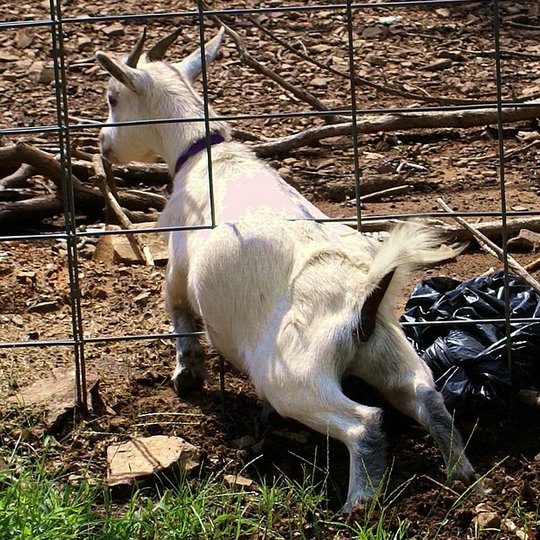 |
|
CLOSE TO THE FULL MOON: |
|
8h (121.7)
χ Gemini (121.0),
NAOS
= ζ Puppis
(121.3) |
ρ
Puppis (122.0),
HEAP OF FUEL
= μ Cancri
(122.1),
ζ
Monocerotis (122.3), ψ
Cancri (122.6),
REGOR (Roger backwards) =
γ
Velorum
(122.7) |
TEGMINE = ζ Cancri
(123.3) |
|
He bore a
grievous weight of dry wood ... |
|
July 20 |
21 (202) |
22 (22 / 7 → π) |
|
'June 24 (DAY OF ST JOHN) |
25 (202 - 26) |
26 (177 = 6 * 29½) |
|
"June 9 (*121 - *41 = *80) |
TE
MARO 10 (161 = 73 + 88) |
11 |
|
MAY 17 (*121 - *64 = *57) |
18 (138
= 202 - 64) |
19 |
|
DAY 121 (= 11 * 11) |
122 |
123 |
.jpg) |
| tagata mau
matagi |
ihe toga maa |
ura hia |
tagata maú
kihikihi erua |
|
Ura. Ura, lobster. Ûra, flame,
blaze (ûra ahi), to become furious (with
manava as subject: ku-ûra-á te manava).
Úraúra, bright red. Vanaga. 1. Crayfish,
lobster, prawn. P Mgv.: ura, crayfish.
Mq.: uá, lobster. Ta.: oura,
crayfish, lobster. 2. Fire, burning, to be in
flames; uraga, combustion, flame, torch;
hakaura, to cause to glow, to kindle, to
light. P Mgv., Ta.: ura, a flame, to
burn. Mq: uá, id. Uraga, burden,
load, weight. Uraura, vermilion, scarlet.
P Pau.: kurakura, red. Mgv.: uraura,
an inflamed countenance. Mq.: uáuá, red,
ruddy. Ta.: uraura, red. Churchill.

Koura. 1. Fry, spawn, roe. 2. Flea. P
Mgv.: ura, crayfish, lobster. Mq.:
koua, ua, id. Ta.: oura, id.
The preface ko to the stem ula
distinguishes the Tongafiti. We therefore assign
the word in Rapanui and Tahiti to a Tongafiti
source, in Mangareva to a Proto-Samoan source,
and Marquesas shows both ... Rapanui is the only
language which defines the flea otherwise than
in terms of the louse, commonly kutufiti
the jumping louse. Pediculus is ancestral
in the South Sea, the flea seams to have been
contributed by the first of the explorers.
Churchill. |
 |
 |
 |
 |
|
Cb5-4 |
Cb5-5 |
Cb5-6 |
Cb5-7 (101) |
|
CLOSE TO THE
FULL MOON: |
|
AL
TARF (The End) = β Cancri
(124.3)
RAS
ALGETHI (α Herculis)
|
χ Cancri
(125.2),
BRIGHT
FIRE
= λ Cancri
(125.4)
*84.0 = *125.4 - *41.4 |
AVIOR = ε Carinae
(126.4), φ Cancri (126.8)
*85.0 = *126.4 - *41.4 |
ο Ursa Majoris (127.4)
*86.0 = *127.4 - *41.4 |
|
July
23 (204) |
24 |
25 (193 + 13 = 175 +
31) |
26 |
|
"June
12 |
13
(164) |
14 |
TE MARO 15 |
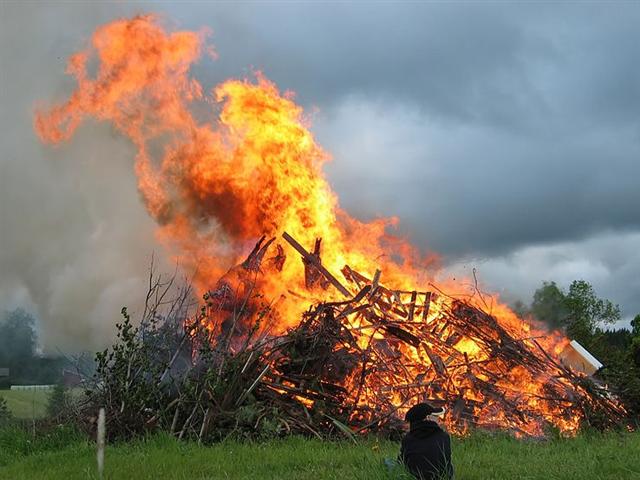 |
 |
 |
 |
 |
|
Ga3-1 (60) |
Ga3-2 (61) |
Ga3-3 |
Ga3-4 |
|
CLOSE TO THE SUN: |
|
July
23 (204) |
24 |
25 (193 + 13 = 175 +
31) |
26 |
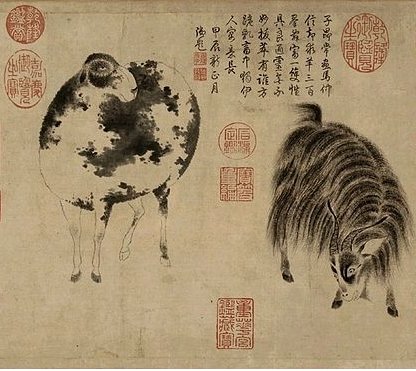
|












.jpg)







